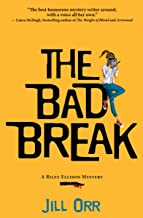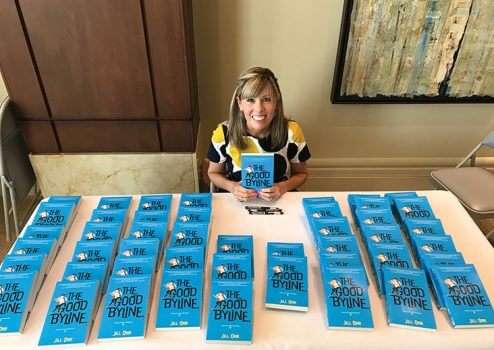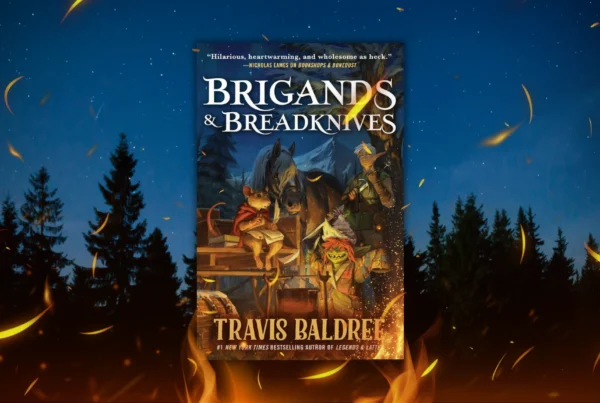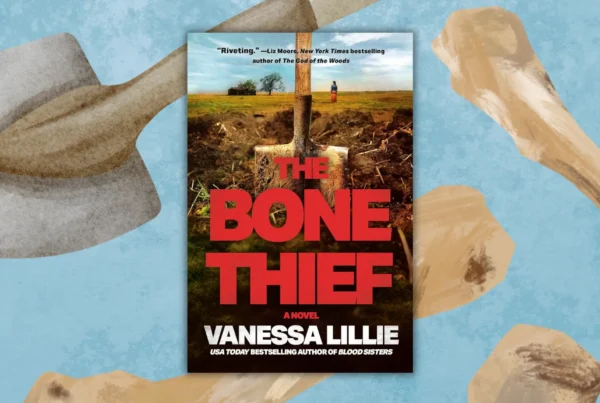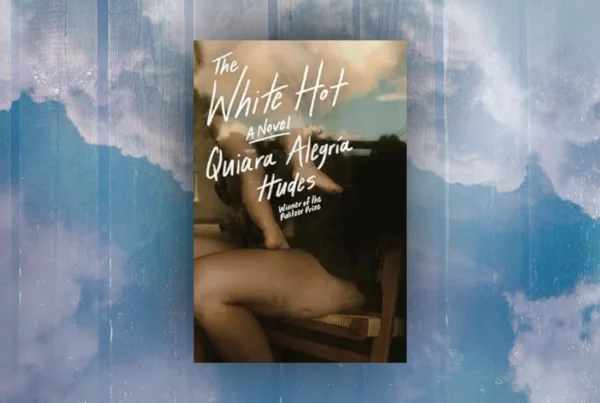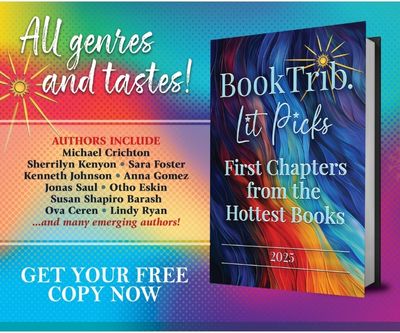The Bad Break by Jill Orr
Crime novels are one of the most popular fiction genres, so it is difficult for writers to keep it fresh and explore new twists on the traditional whodunit. Author Jill Orr is successfully among those who have. niche all of her own. Rather than featuring your seasoned crime solver or other professional-turned-sleuth, Orr’s amateur gumshoe, Riley Ellison is a directionless millennial who trips her way into a journalism gig when she’s asked to write her childhood best friend’s obituary – and ends up solving her murder. By actually capturing the unique voice of a generation Orr brings something out of the ordinary and elusive to so many.
Technically an adult, but just not ready to embrace it, Riley Ellison is a mix of quick wit, optimism and determination, while still being just kind of a mess. Orr writes this millennial in a way that doesn’t convey condescension or is patronizing in tone, but just someone who is incredibly relatable. In the latest installment,The Bad Break, Riley finds herself investigating a murder where everyone seems to be a suspect. On her own with no help from Holman, her journalist mentor and friend, Riley might just be in over her head.
I recently spoke with Jill Orr for BookTrib about the creation of Riley Ellison, writing crime and suspense in a crowded market and how best to express the millennial perspective.
BookTrib: These books may be about crime, but they’re actually centered on obituaries, which is a unique topic to write about. How did that obituaries were what you wanted to write about?
Jill Orr: It actually came from a Facebook post, of all things. I was wasting time on social media, as one does, and this post popped up; it was a link to an obituary, with the caption “This is the best obituary ever written.” I was intrigued – I wasn’t really an obit reader myself, but you’ve got to click on it with a headline like that – and it led me to this website called legacy.com, where you can post the obit for your loved one, and people from all over can see it. I read this obituary for this man, Harry Stamps, and it really was the best obituary written. It was funny, it was touching, and it really gave you a sense of who he was – it was written by his daughter, and by the end you kind of felt that you knew him, or that you wanted to know him. So, there I was on legacy.com, and I just fell down a rabbit hole.
I just started clicking on different obituaries, and the seed of an idea took root because I kept seeing the same usernames pop up in the comments sections. And these were from all over – some from Florida, or Washington State, California – and they couldn’t all possibly know these people. But they were commenting, and it hit me that these were not friends or family of the departed, but they were fans of obituaries.
They were reading just for the story, which struck me as this crazy quirk; I started looking into it and sure enough, there’s this entire underground society of people who love reading obituaries. They have their own conferences, where obituary writers and readers get together; they have awards called the Grimmys. I found some books on it – the one I always recommend is called The Dead Beat by Marilyn Johnson – and I thought that this is just too good, the perfect quirk, especially for an amateur sleuth because you already have a death, you just have to throw in a little murder, and you’re good to go.
It all started with this idea of someone who was obsessed with reading about other people’s lives through the obituaries. When I initially thought up this unnamed character, I kind of thought she’d be dark, and macabre, and kind of goth, but the more research I did on the real life people who read obituaries as a hobby, the more apparent it became that these are really optimistic people, it’s a really kind of hopeful pursuit that people read about other peoples lives to try and learn from it, and Riley became a really optimist person.
BookTrib: Riley is part of the millennial generation and even though she’s pretty optimistic, you don’t write her in a condescending or patronizing way, the way so many novels written about the millennial generation can be. Capturing that voice of being old enough to be an adult but not feeling comfortable in the mindset of one, is something that a lot of authors struggle with. Why not you?
JO: I was actually pretty concerned about that: I didn’t want anyone to feel like I was condescending. I think for better or worse, with every book I’ve ever written the main character is in that newly adult phase, where you’re done with school, you’re out in the world, but you’re just not really sure if you have permission to an adult. I think there’s just so much material there – it may be the time of life that the most growth takes place, where you have to figure out not only who you are, but who you want to become. You don’t have the structure of school that you’ve always had, and you’re kind of just out there flailing around, and there’s such a richness there. People act like “Oh, they’ll know what they want to do” but the reality is that most of us graduate, and that’s when you actually start to figure out what you like and what you don’t like. So I think that I’m really enamored with that phase of life, so that’s where I put Riley, and really just let her sink or swim – a little bit of both, I think.
BookTrib: The other part of putting her into this age and generation is that these aren’t crime novels or flat-out adult fiction, but they’re also not Young Adult novels either.
JO: I’ll admit, it’s been a bit of a problem marketing-wise! These aren’t crime novels, but they’re also not Young Adult. I was at a convention and I had my ARCs [Advanced Reader Copies] of The Bad Break and every bookstore owner that walked by would come up to me and say “Is this YA?” and I would reply, “No, but it kind of is?” It’s a tricky genre to sum up in one word. But with the millennial life coach in the second book, I thought about trying to get this out to younger readers, because most of the readers of the first book were cozy readers, and this isn’t a typical cozy book. So with the second book we thought we’d try and get it out to reach the millennial reader. And so many books that are out now have the unreliable, flawed narrator and they’re kind of dark, so I got to change it up and offer something new.
BookTrib: You mentioned the millennial life coach in The Bad Break, Jenna B., which also brings us to Regina H., the “personal romance concierge” in The Good Byline. They both offer such a great shot of humor, adding in these great comedic shots. How did you come up with the two of them as characters, as well as the idea of Click.com?
JO: Regina is one of my favorites. I don’t know exactly where she came from, she just popped into my head fully formed, and her ardent optimism for the future was just there from day one. One of my very favorite books that I’ve ever read is Where’d You Go, Bernadette, by Maria Semple – it’s this epistolary novel, written in letters, emails, all that kind of stuff – and I just thought it was brilliant. It was full of humor, without being cheesy. For Riley, one of her struggles in The Good Byline is her love life, and I wanted it to be kind of like her mom pushed her into this online dating scene, and she’s not really into it but she’s going along for her mom’s sake.
But Regina becomes her “personal romance concierge” and just uses all these hashtags. I’m in my mid-forties, and my friends and I didn’t grow up with hashtags, so we misuse them and our children laugh at us. So I decided that was something I was going to give to Regina, and she was just going to be the worst hashtagger ever, just using them with complete wild abandon.
In the second book though, Riley doesn’t really need Regina anymore, but because I liked having those moments of pure humor to break up the narrative of the mystery, and since Click.com seems like the master of the up-sell, I thought that they’d have to have a sister company to take people’s money, and I just had this idea of a millennial life coach which became Jenna. It was important to me that she have this quality of optimism, and this drive where she’s not going to give up, she’s not going to take no for an answer, but she’s also going to get all her advice off the back of cereal boxes.
BookTrib: Riley is such a great character, a really individual voice. She’s dynamic, and she’s relatable: she kind of fell into this journalism gig, her love life is going okay – things are working out, but they also seem like kind of a mess. Did you know all along where you wanted to take her?
JO: Riley definitely developed as I was writing. The only thing I knew when I started writing is that she was young, depressed because of her break up with Ryan, and she was obsessed with obituaries. So that was really where I started with her, and, unfortunately, I’m not someone who outlines – I’ve tried, I’ve really tried all the different writing methods – but I just end up having these character that I follow around and see what they do, and that’s really where Riley came to life. She’s doing her best, she really is – in her heart she’s an optimist, but she’s feeling really beat down, and I love this idea of her finding a profession that really has a passion for, that she’s good at, that has a connection to her grandfather.
I thought about her a lot when I did revisions, and I wanted to make that she seemed realistic. The book takes place over a couple weeks max, and while I wanted her to change, I didn’t wanted to change too much. With The Bad Break I had to be careful because if you solve all of the problems, then no more books. But the reason that I didn’t have Holman in a lot of The Bad Break is because I wanted Riley to struggle professionally. I thought that she needed to work the story by herself, and have all the pressure and stakes that come with that, so she could prove to herself that she could do it.
BookTrib: Speaking of Holman, I couldn’t find a way to describe him other than half Sherlock Holmes, half Doctor Who fanboy. Was Holman someone that you planned on having from the beginning, where he would act as something of a mentor to Riley, and that they’d have this quirky relationship?
JO: No, he was a surprise! One of the things that happened was that I didn’t know who the killer was until the end, because I just kept changing it. I kept thinking, maybe Holman did it, or maybe it was Tabitha, or someone else. I think that is one of the reasons, especially with The Good Byline, that a lot of people haven’t been able to guess who did it. When I initially wrote the scene with Holman where she gets into his car and they go for barbecue, I just thought “well, maybe he’s the killer.” I tried to make him a little bit weird, and have Riley be a little unsure. But Holman just presented himself as this kind of odd guy, miles from the center of normal, but actually really happy with himself and just is who he is. I think that it worked out well, because in some ways he looks to Riley for advice, and in some ways she looks to him. They have this nice friendship, where they can both learn from each other even though he’s technically the expert.
BookTrib: Your plots don’t stop where a typical mystery novel would stop: you present the suspects, but then you eliminate all of them, bring them back, and introduce some new people, and make it impossible to guess who it is! Do you just have the murder, and then along the writing process figure out who it is?
JO: With The Good Byline, I just kept on changing it – I had every person in that book as a suspect at one point, and I just kept writing it and writing it, and for a long time it was going to be Jay, but then there was just something about that that didn’t feel right. I’m a big mystery reader, and part of the fun is trying to figure out who did it. I think that’s also part of the fun of writing it, and choosing how to present it to the readers – you can’t just throw all the information at them and then throw in a crazy twist at the end. You have to make them work a little bit. With The Bad Break, I think there’s some behind-the-scenes kind of stuff that comes out after you know who the bad guy is that hopefully makes it interesting to keep reading. It was important for me to not use the typical formula for revealing the killer every single time. Once I’ve kind of figured out that, okay, this guy is the one who did it, I like to try and change it up so it’s never the same, typical, formulaic narrative after that.
BookTrib: Ridley is a new character that isn’t really, but operates as an alter ego for Riley. When Ridley moves to Tuttle Corner, I kept expecting that there would be this competition between them, but instead, we see this tentative but truly genuine friendship grow. It was actually really nice to see, rather than have the usual competition over the guy.
JO: Exactly. And that was pretty intentional, because when the series starts, Riley has no female friendships, and I think that for a young woman in a small town where everybody knows everybody else, and she has kind of a reputation, that would be a pretty lonely place to be. So I really liked this idea of her begrudgingly starting to really like Ridley, with all of her qualities and these crazy characteristics that she has, and Riley can’t help but like her. And, of course, Ridley wants to be friends, and as I’m writing book 3, that’s one of the things that I’m starting to really get into, and all of the different ripples that this unlikely friendship causes.
BookTrib: Now, I don’t want to spoil anything, but you end The Bad Break on a huge cliffhanger involving Riley’s grandfather. Did you plan this from the beginning?
JO: I will say that for as little as I planned, the one thing I did plan out for the overarching series was the mystery of what happened to the grandfather. That was intentional. I actually know what happened to him, I have all the details planned out – that’s pretty much the only thing I know for sure about the series – but I get to drop little bits of what happened in each story, in each book. It’s a little tricky about what information to add because I don’t know how many books will be in the series – that’s more of a publishing question – but I talk with my editor, and in Book 2 you get some more information, and in Book 3 you get more of Flick’s investigation into that happened, and ways that it ties into the current landscape of Tuttle Corner.
BookTrib: What’s coming next for you?
JO: Right now I’m just working on Book 3 – untitled, as of yet – but you will definitely get more information on Riley’s grandfather and what happened to him. Without giving away too many spoilers, Rosalie, the tavern/cafe owner is mixed up in this double murder that’s receiving national attention because it involves the wife of a wealthy, D.C. lobbyist.
BookTrib: Finally, what’s the one book that you wish you had written?
JO: It has to be Where’d You Go, Bernadette!
The Bad Break is now available for purchase, but keep an eye out for our giveaway of the Riley Ellison Mystery Series!
For more information on the author, visit her website at jillorrauthor.com.
